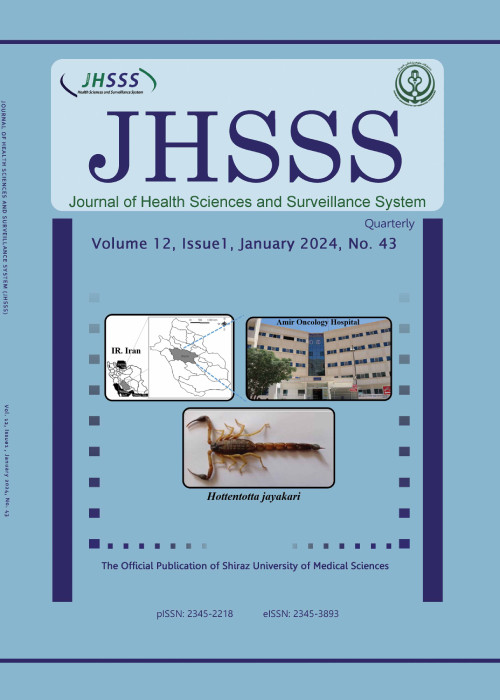The Role of Social Media in Coronaphobia
Coronavirus disease 2019 (COVID-19) is a severe respiratory illness with an unknown cause that was diagnosed in December 2019 in Wuhan, China (1-3). Iran is one of the countries involved with this disease. The global outbreak of the disease raises concerns about increased anxiety due to the risk of contracting the virus (4). Therefore, in addition to causing physical harm, COVID-19 also has a serious effect on people's mental health. To date, no exact information is available on the mental health problems and psychological effects of COVID-19 on people, nor is it clear how people react when faced with such a crisis; therefore, for health care providers how best to respond to challenges related to COVID-19 is confusing. However, observing the consequences of mental health and the measures taken during the outbreak of SARS in 2003 can help the health care systems to make mental health interventions for people that are involved with COVID-19 (5). However, many people may not be sure that their health care systems are ready to deal with coronavirus, and a lack of trust in the country's health care system is likely to raise concerns about the consequences of the disease. In such circumstances, people use different methods of obtaining information when faced with crisis situations; sometimes these methods are invalid. One of these methods is to obtain information from invalid social media such as Instagram, WhatsApp and so on. Nowadays, with the availability of smartphones, the expansion of activities in virtual networks has become more and more. Therefore, people in anxious situations are looking for information to relieve their anxiety and for this purpose, they search social networks and being exposed to incorrect information in social networks can aggravate their anxiety (6). Therefore, in this situation, several factors may lead to development of Chronophobia. One of these conditions is using unreliable social media. In this regard, a study conducted by the Indian people on awareness, attitude and anxiety about COVID-19 showed that people's anxiety about this disease was at a high level and distress-related social media was seen in 36.4% of the people, and the participants expressed that one of the most important resources of anxiety was the social media (7). At this time, the important question is whether the health care systems in the country are ready to deal with the growing concern of the people in such a situation that is the result of misinterpretation of the symptoms of COVID-19 and in cases where mild respiratory symptoms may develop Chronophobia. Meanwhile, the role of health care provider in reducing people's anxiety and preventing Chronophobia is vital (8, 9). Finally, it can be said that health care systems can prevent Chronophobia by increasing people's knowledge, thus improving their attitudes towards COVID-19.
- حق عضویت دریافتی صرف حمایت از نشریات عضو و نگهداری، تکمیل و توسعه مگیران میشود.
- پرداخت حق اشتراک و دانلود مقالات اجازه بازنشر آن در سایر رسانههای چاپی و دیجیتال را به کاربر نمیدهد.


